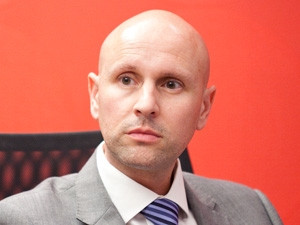
Despite the evolution, it is common cause - particularly in government circles - that the business process outsourcing (BPO) industry hasn't lived up to the promise of job creation. The first discussion point at ITWeb's roundtable asked panellists to name and discuss the factors that inhibited full delivery on the job creation promise.
Craig Terblanche, MD of CXO Advisor, says it starts with the ease of doing business in SA, and flowing from that, the lack of structure for the incentive funding to be effective. "You either have the big BPO players or you have nothing; there's no opportunity for smaller businesses to be funded."
Zain Patel, GM of Support Services at Merchants, concedes the point but suggests that, looking at job creation from a macro perspective, the biggest inhibitor is trying to get the unemployed or the unemployable into the workplace more than anything else. "We tend to generally ask for certain levels of experience, [say] six months' experience or some type of contact centre background," he says.
The result, maintains Patel, is the same small pool of contact centre agents are constantly moving around the industry, jumping ship for an increase of R2 or R3 per hour.
Stefan Diedericks, Alliance & Channel director at Oracle, says one of the biggest inhibitors is the ICT companies supplying software and services to the BPO industry. "Our industry has demanded payment for software licences upfront, rather than providing subscription-based software for the providers," he says.
Dr Madelise Grobler, MD of Bytes People Solutions, believes the biggest inhibitor to job creation is the industry itself and the way it thinks. "If we think we must get low-level people and pay them as little as possible, that's not sustainable," she says.
Skills development
Her solution is to combine skills development with the job, helping agents to identify and pursue specific career aspirations. "I make sure that each individual knows they're not going to be stuck in the call centre [forever]," says Grobler.

"There are no quick fixes," she adds. While conceding that skills development is expensive, Grobler makes the valid point that without it, BPOs are lucky to retain a call centre agent for 11 months. However, by providing skills development along with an element of career guidance, they could retain agents for two years or more.
Anton du Plessis, GM: Business Development, WNS Global Services SA, says most outsourcers in SA try to support the education system and tweak it to work in their favour. "We all share the frustration that the minute we produce good agents, the big corporates steal them," he says.
"Job creation is going to come with new international business; otherwise we're just circulating existing jobs in the country. If I go to Standard Bank and I say, 'Outsource to me', and they outsource to me, it's a displacement, there's no job creation."
If we think we must get low-level people and pay them as little as possible, that's not sustainable.
Lise Hagan, research manager: Software & IT Services at International Data Corporation, notes that whatever South Africa does, its offering has to be competitive with the rest of the world. She also says it's not the first time a country has faced these issues.

"If I look at what happened five, 10 years ago in India, these are actually exactly the same type of questions that you're struggling with now," says Hagan.
Grobler thinks the industry is missing a huge opportunity by not targeting South Africa's 600 000 unemployed graduates. "They don't have work, they want to work, and they have already proved that they can get a qualification. They're a target audience and we need to focus on them and get them into the workplace," she says.
Fresh blood
Terblanche agrees, suggesting a move up the BPO value chain. "If you take the call centre market, it's not focused on the process as much as it is focused on call handling.
Job creation is going to come with new international business; otherwise we're just circulating existing jobs in the country.
"So claims processing would be more of a value equation than call handling, legal process outsourcing, and procurement. Find the business value that you can offer and compete at that level. If you can get that right in the next few years, you won't be that concerned about competing on cost."

Patel points out that South African outsourcing tends to stick to outsourcing in the traditional sense: voice outsourcing, or back-office outsourcing. He too advocates a focus shift to what he calls functional outsourcing. "This is the outsourcing of quality and function, as an example, workforce planning and optimisation.
"If you talk about 600 000 unemployed graduates, you're talking about people with a vast array of skills that are out there. I'm not talking about call [centre] agents. I'm talking about people who could do quality management, who could do advanced mathematical work, etc. That could be the future of call centres," he says.
IDC's Hagan agrees unequivocally. "If you look at global offshore BPO providers, the big buzzword at the moment is analytics, with big data. So it's moving away from just doing the call processes to [analysing big data that is] business value-add," she says.

Terblanche adds: "The whole point of BPO is to acquire a level of professionalism and expertise that you can't afford to build yourself, and you buy it at economies of scale.
"Those resources are there, they're hungry, and if the industry banded together and focused on procurement as an example, and built that competency, you could build it as a national asset," he says.
All the panellists agreed that the nature of BPO is changing. This is perhaps best summed up by Hagan: "It has to be a reciprocal process and it has to go to a very deep partnership," she says.
The whole point of BPO is to acquire a level of professionalism and expertise that you can't afford to build yourself, and you buy it at economies of scale.
First published in the June 2013 issue of ITWeb Brainstorm magazine.
* Article first published on brainstorm.itweb.co.za
Share